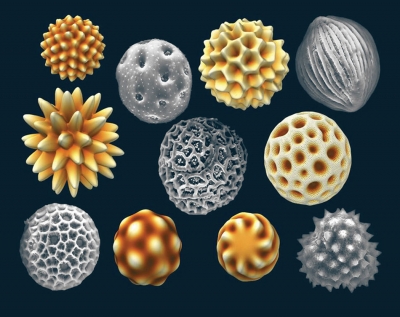
Palynology, scientific discipline concerned with the study of plant pollen, spores, and certain microscopic planktonic organisms, in both living and fossil form.
The term is commonly used to refer to a subset of the discipline, which is defined as “the study of microscopic objects of macromolecular organic composition (i.e., compounds of carbon, hydrogen, nitrogen and oxygen), not capable of dissolution in hydrochloric or hydrofluoric acids”. It is the science that studies contemporary and fossil palynomorphs, including pollen, spores, orbicules, dinocysts, acritarchs, chitinozoans and scolecodonts, together with particulate organic matter (POM) and kerogen found in sedimentary rocks and sediments. Palynology does not include diatoms, foraminiferans or other organisms with siliceous or calcareous exoskeletons.
Palynology as an interdisciplinary science stands at the intersection of earth science (geology or geological science) and biological science (biology), particularly plant science (botany). Stratigraphical palynology, a branch of micropalaeontology and paleobotany, studies fossil palynomorphs from the Precambrian to the Holocene.
Picture Credit : Google

